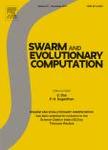版权所有:内蒙古大学图书馆 技术提供:维普资讯• 智图
内蒙古自治区呼和浩特市赛罕区大学西街235号 邮编: 010021

作者机构:Arak Univ Fac Engn Dept Comp Engn Arak *** Iran
出 版 物:《SWARM AND EVOLUTIONARY COMPUTATION》 (Swarm Evol. Comput.)
年 卷 期:2025年第93卷
核心收录:
学科分类:08[工学] 0812[工学-计算机科学与技术(可授工学、理学学位)]
基 金:We thank Raffaela Mirandola for her invaluable feedback and reassurance which influenced how we organized the paper
主 题:Evolutionary computation Text clustering Multi-objective optimization Optimization algorithms
摘 要:The exponential growth of unstructured text data generated by internet users has created an urgent need for efficient organization methods to uncover valuable insights. Text clustering, a widely used data mining approach, often relies on single-objective optimization, which can struggle to deliver optimal results for datasets with diverse clustering criteria. To address these challenges, we propose the Multi-objective Firefly Differential Jaya (MFDJ) algorithm, a novel nature-inspired optimization method designed to enhance text clustering. MFDJ integrates the strengths of NSGA-II, a well-established multi-objective optimization framework, with three complementary algorithms: the Firefly algorithm for swarm intelligence-based optimization, Differential Evolution for robust exploration through mutation, and the Jaya algorithm for parameter-free improvement leveraging both the best and worst solutions. This synergy significantly enhances the algorithm s ability to balance exploration and exploitation, yielding superior clustering performance. We evaluated MFDJ on eight benchmark text datasets, where it demonstrated consistent superiority over state-of-the-art methods, including NSGA-II and MOMDE. On average, MFDJ achieved a 67.89% improvement in F-measure over NSGA-II and a 5.87% improvement over MOMDE, while also exhibiting better convergence properties for the majority of datasets. These results underscore the capability of MFDJ to generate high-quality clusters, making it a versatile tool for tackling complex text clustering and broader optimization challenges.